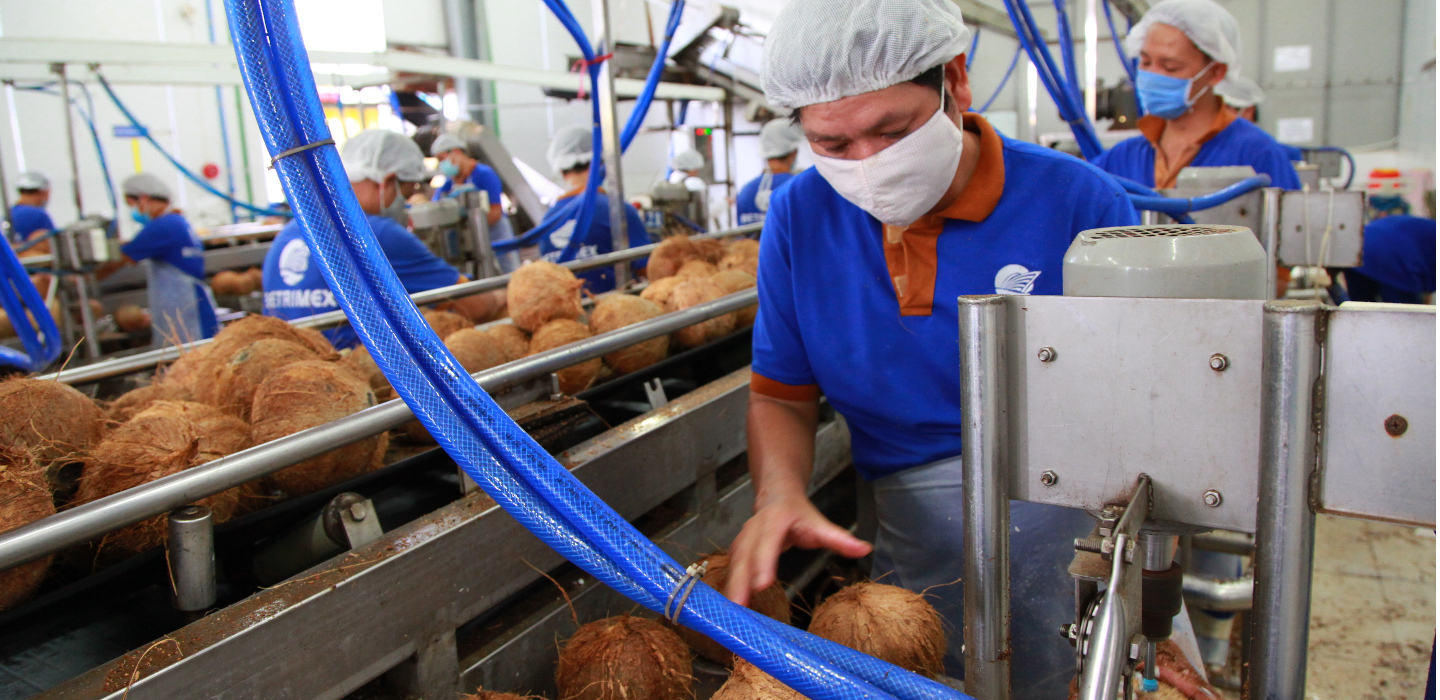IFAD country programmes adapt to the COVID-19 crisis: Updates from the Asia-Pacific region
IFAD Asset Request Portlet
Asset Publisher
IFAD country programmes adapt to the COVID-19 crisis: Updates from the Asia-Pacific region
By Nigel Brett

Ever since the virus that causes COVID-19 reached pandemic proportions across the Asia-Pacific region six months ago, the scale of the challenge has become ever more daunting. The number of reported cases continues to rise, with South Asia (Bangladesh, India and Pakistan) emerging as the most strongly affected subregion. Even countries that initially received praise for their ability to contain the virus now find themselves grappling with growing numbers of cases. And the projected social and economic impacts across the region are truly frightening.
There is, however, some encouraging news. Global agricultural markets remain stable, and are proving resilient. Production levels of key staple crops, including rice, remain at historic highs. To ensure global and regional food security, it is imperative that food trade continue uninterrupted. IFAD continues to work closely with Member States, the greater UN system and other development partners to support food security initiatives in the countries we work in, including safety net programmes, agricultural services and inputs, safe storage of food, marketing support and assistance with rural finance. We are also continually updating and evolving our country-level support according to the situation on the ground:
In Pakistan, the IFAD-financed and Pakistan Poverty Alleviation Fund−implemented NPGP programme is providing extra income support to particularly vulnerable households, in hopes of helping them avoid distress sales of their critically important livelihood assets. An income supplement, for use as working capital, is enabling households to purchase fodder to keep their animals alive, repair essential farm machinery, or keep micro-enterprises running. In addition, under IFAD’s new Rural Poor Stimulus Facility (RPSF), a grant of US$1.07 million has been allocated to establishing channels for input supply between farmer groups and input suppliers. A simplified digital platform is also being developed and operationalized, with delivery of inputs to farmers’ doorsteps.
In Afghanistan, the CLAP and SNaPP2 projects are providing awareness campaigns, along with special training and support, to enable livestock producers to meet new COVID-19−related health and hygiene requirements for production and processing, thus maintaining their ability to market their products. Veterinary training now includes additional materials related to COVID-19. The newly approved IFAD/AsDB-financed Arghandab Integrated Water Resources Development Project is providing for the construction of cold-storage facilities (for potatoes and onions) and providing solar dryers (for fruit), all to help producers keep produce fresh in situations of COVID-19−related market disruptions. A new RPSF grant of US$0.89 million has just been approved to complement this re-programming by providing support for basic inputs and facilitating getting produce to markets.
Cambodia’s ASPIRE project has been restructured to provide immediate production support to vulnerable smallholders. As just a few examples of the project’s new support initiatives: Farmers are receiving extension training and input support to increase their productivity, especially for short-cycle products such as poultry and vegetables. Mobile vegetable markets, designed to comply with all the relevant safety precautions, have been set up at the provincial level to promote local production and sales. Local collectors and buyers are being connected directly with small-scale producer groups in service of re-establishing local value chains. Finally (with the support of a grant from the Republic of Korea) the project has launched Chamka, a virtual marketplace that will connect farmers with buyers and suppliers.
A newly approved RPSF grant of US$0.54 million is complementing this re-programming. It is focused on immediate production support to vulnerable producers for vegetables and backyard poultry.
The SAPP project in Sri Lanka, originally designed to support a 4P value chain approach targeted to export crops, has been re-programmed to focus on value chains that respond directly to emerging COVID-19−related food security issues. It is now supporting 16 priority crops, including maize, cow peas, chillies and green grams, and is additionally supporting seed production for key crops such as potato and chilli. SAPP is also building a full-fledged digital platform to link partners all along the value chain and to ensure agribusiness and marketing services, particularly for project participants in remote areas.
There are a number of examples throughout India of projects that have been reoriented in response to the crisis. The APDMP project in Andhra Pradesh has helped small-scale farmers market their produce through institutional and digital platforms as well as adapt to new market conditions. For example, the state seed corporation procured groundnut seed from 73 seed-producer organizations during the lockdown period at a total value of US$3 million, significantly boosting these producers’ incomes. Projects are also moving to digital platforms to link farmers directly with consumers. In Jharkhand, for instance, farmers supported by the JTELP programme are selling vegetables and fruits via Aajeevika Farm Fresh, an app developed by the Jharkhand State Livelihood Promotion Society. In Maharashtra, the self-help groups supported by the TRWEP are enabling the sale of fresh produce through WhatsApp/phone groups. In Uttarakhand, the ILSP is helping flower producers cope with the collapse in demand during lockdown by supporting their move into higher-value products, such as powdered flower petals, incense sticks and natural dyes.
The Bangladesh country programme has been adapted in a number of ways, with a particular focus on inputs supply and marketing assistance for vulnerable farmers. The SACP project, for example, has distributed vegetable seeds and provided training on the production of higher-value vegetables and fruits. Seeds were delivered directly to the farmers’ doorsteps to avoid crowds at local offices. Meanwhile, the NATP2 project provided battery-run rickshaw-vans to help livestock farmers sell their produce. These rickshaws served as “markets on wheels” that helped farmers take their milk, eggs, poultry, meat and dairy products directly to the communities and people’s doorsteps, minimizing the risk of community transmission and avoiding traditional wet markets. NATP2 also supported on-line fish and crop markets, the purchasing of critical input supply (seeds, fertilizers, feed, phytosanitary products), and post-harvest technology for safe food storage and longer shelf life. Projects across the country have also been working with local police to ensure free movement of agricultural goods during lockdown.
Finally, the PACE project has been assisting 1.3 million micro-entrepreneurs across Bangladesh with implementing health protocols for safe operation and transport of products. PACE has also linked farmers with online retailers to market high-value crops. These initiatives are complemented by a newly approved RPSF grant of US$0.915 million, which will provide inputs and capacity-building to help households develop nutrient-rich homestead vegetable gardens.
To improve access to finance, the Women’s Development Funds, an IFAD-supported initiative operating throughout 11 provinces of Viet Nam, have extended the deadlines for loan repayment and reduced interest rates. Other IFAD-financed projects across the country have accelerated their matching grant support for farmers’ Common Interest Groups while also reducing the thresholds for group member contributions. These projects have also provided vocational training aimed at youth who have lost employment in the cities and are returning to rural areas. To ensure safety, extension trainings are now taking place virtually. IFAD has also supported the development of an ICT-based online marketing system, with financial support from the Government of the Republic of Korea.
Under the ongoing Samriddhi project, migrant families in rural Nepal are being prioritized for new employment and income-generating opportunities, with a focus on vocational training, to support the large number of returnee migrant workers. Meanwhile, the newly planned VITA project has been designed to enable the safe marketing of products, including providing for collective marketing through producer organizations, with trucks collecting products in bulk directly from villages. VITA will also support the expansion of electronic payments, as well as widespread adoption of safe working practices throughout supply chains. A recently approved RPSF grant of US$0.543 million will focus on expanding digital services (such as agricultural market price and trading information, technical and production advice, and offers from input suppliers and other service providers) to participants of several in-country IFAD-funded projects. It will also offer these farmers digitalized financial services, via the new Kisan Card and accompanying app, that facilitate remote payments – which will be especially helpful in situations where bank branches are under lockdown and physical transactions are no longer feasible.
One thing is clear. There is still a long way to go before we overcome the current crisis and reach a new equilibrium in the Asia-Pacific region, and in the meantime, we simply cannot allow COVID-19 to derail progress towards reaching the UN Sustainable Development Goals by 2030. IFAD remains fully committed to working in partnership with Member States and the greater UN system to alleviate the impacts of COVID-19 on food security, and to ensure that the most vulnerable rural populations are not forgotten.
Publication date: 11 September 2020